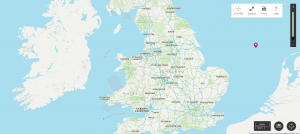Registration of Property in the UK: Why and When?
If you own a property that has not been registered to the Land Registry it only means there has not been any transaction related to the requirements that ensure your ownership of the particular property. Though the majority of the property has already been registered in the country, if a property is left unregistered, the owner or the customer might face complications while selling and/or buying it. This blog is to guide you completely about how to register a property for the first time.
So, if you are a UK resident and are planning to buy a new house or land, make sure to get it registered with the HM Land Registry to get legal ownership of the property. Even if you have an inherited property that has been left unregistered you can get it registered any time you wish to. Keep in mind the following reasons why you should get your property registered with the HM in the United Kingdom:
- Registration of property establishes proof of ownership. It simplifies transfer and makes transactions easier.
- The related data and information is kept safe in the database of HM Land Registry.
- Registration of a property is the best way to safeguard the ownership legally.
- Registration provides you with a “Title Plan” which identifies your land on the Ordnance Survey Map.
Registration of Property in the UK: Where?
You must get your property registered on its purchase with a government agency. The UK government created a non-ministerial department in 1862 for the residents to get their lands and houses registered in England and Wales. This department, known as the Her Majesty’s Land Registry, reports to the Department for Business, Industrial strategy, and Energy. You can also use the Ready Steady Sell and compare the prices and buy the property in UK.

The HM Land Registry aims at registering the ownership of lands and houses. Here, land may also include the buildings on the land such as flats. Getting your property registered with the HM Land Registry provides you with the “Title Plan” which identifies your land on the Ordnance Survey Map.
The owners of property which have not been registered can apply voluntarily for registration. With the help of the HM Land Registry, you can get your property registered under the Land Registration Act of 2002 that provides the owners of the property protection against illegal tenants and squatters. This also ensures to produce you the old documents and data if ever needed in future while the property changes hands.
How to Register a Property in the UK?

So long we have been discussing the needs and significance of getting your lands and houses registered with the government agencies. We also discussed the agency of the UK government that gives you a safer way to get your property registered. Now let us know that being a resident of the United Kingdom, how you can get your property registered with ease.
There are different ways for registering discussed below
Registration of Property for the First Time
Before the purchase of any land or house make sure to first get it registered. Even if you are planning to mortgage your property, first get it registered. This, apart from giving you proof of ownership, protects your property from fraud. It also makes selling easier. To get your property registered, you can apply on your own in the HM Land Registry department of the UK government or you can look for a conveyancer or you can get a solicitor to get your work done.
The following points should be kept in mind if you are getting your property registered for the first time:
-
Old Registration Data
Look out for the old documents of the property to check if your property has been registered earlier?
2. The Land Charges Department
Seek the mentioned department to get the details of the previous owners of the property.
3. Apply for First Registration
After all your seeking with regard to the history of your property and its previous owners now you need to fill an application for the first registration.
4. List of Required Documents
Find out about the required documents and get ready with at least two copies of each.
5. Registration Fee
The registration fee depends on the property you are registering for. You need to find out about the registration fee required for your property.
6. HM Land Registry
Now you need to send your documents to the UK government’s Her Majesty’s Land Registry Department for registration of your property.
Registration of the Property You Bought
While you are heading towards registering a property you bought, the steps and requirements are the same as while registering the property for the first time. You need an extra form which is known as the ‘Transfer of Whole of Registered Title’ form.
Registration of the Property You Inherited
For registering an inherited property, first, you need to go through the steps discussed while the registration of property for the first time and you need to gather the same documents discussed there. Once you have completed them all, you will have to fill a ‘Whole of registered Title Assent Form’ in case the sole registered owner of the property has mentioned the transfer of property to you in his/her will.
If you are facing any sort of confusion you can simply contact the HM Land Registry to get to know about which form you are supposed to fill.
Apart from the documents related to the land or house and the forms mentioned above you may also need some other documents. You may also need to send identity proof in case you are not a legal professional like a conveyancer. You may also need to present a ‘disclosable interests’ form’. If you have paid Stamp Duty, you may be required to show the Land transaction return certificate.
Registration of the property in the UK: Risks

You must be aware of the risks while getting your property registered. Keep a close eye on the process as there are many fraudsters waiting for you to make slight negligence so that they can grab your property. Stay safe from the fraud conveyancers as well as fraudsters can target your property anytime.
Finally, let us end up the discussion on how to register a property for the first time in the UK. Please leave your comment below if the blog is useful and follow up with the E-Business blog for further updates.





































